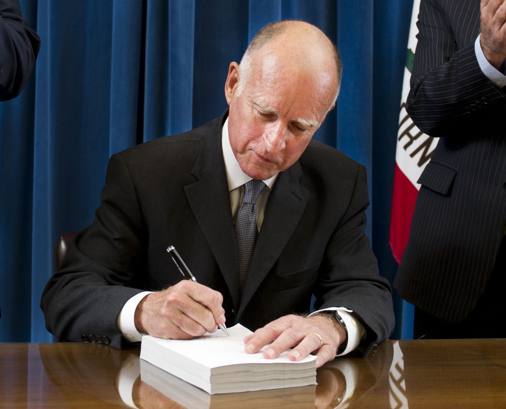The Government Spending Limit Act of 2012: A Return to Fiscal Sanity
In response to the wave of proposals to increase taxes of nearly every type, on nearly every Californian, an alternative approach to our chronic budget woes was recently filed as a proposed initiative to restore the Gann Spending Limit, which had until the early 1990’s worked to control government spending. In 1979, voters approved Proposition […]
Referendum of SB 202 is “Checkmate”

Dan Walters in the Sacramento Bee recently opined that a referendum of SB 202 (the bill moving all future ballot measures and the pending “Rainy Day” spending limit negotiated by Gov. Schwarzenegger) is a strategic chess move that could be trumped by Secretary of State reversing a decades long interpretation that allowed initiatives to qualify […]
Steinberg’s SB 653 Local Tax Measure Runs afoul of Serrano Court Decisions
Senator Steinberg has
lots of ideas. Previously, he announced his desire to withhold state
services in districts represented by Republican legislators, to punish them for
holding out against the higher taxes he supports. Now Senator Steinberg
is threatening to grant local governments and school districts broad new taxing
authority. Under SB 653 a school district would be empowered (with voter
approval) to levy income taxes, excise taxes (e.g. a tax on tobacco, alcohol,
soda), even an oil severance tax in districts lucky enough to have oil
reserves.
As
noted previously, Senator Steinberg’s plans violate the equal protection
clause of our state and federal Constitutions. Way back in the 70’s our
State Supreme Court put an end to the disparity between school funding based
primarily on property tax in a line of cases called "Serrano v. Priest."
Our Supreme Court stated:
For the reasons we have explained in detail, this
system conditions the full entitlement to such interest on wealth, classifies
its recipients on the basis of their collective affluence and makes the quality
of a child’s education depend upon the resources of his school district and
ultimately upon the pocketbook of his parents. We find that such financing
system as presently constituted is not necessary to the attainment of any
compelling state interest. Since it does not withstand the requisite ‘strict
scrutiny,’ it denies to the plaintiffs and others similarly situated the equal
protection of the laws.
Constitutional Refresher Course Needed for Messrs Steinberg and Lockyer
The Sacramento Bee recently reported that both Senate President Pro Tem Darryl Steinberg (an attorney) and Treasurer Bill Lockyer (an attorney) are suggesting that the Legislature will cut funding for certain government services and programs to citizens in GOP districts if the legislator representing said districts refuse to budge on tax increases to close the budget deficit.
Steinberg is reported to have said: “You don’t want to pay for government, well then, you get less of it.” Further, he is quoted as saying: “When it comes to kids or the vulnerable, I wouldn’t want to make distinctions between who lives in a Democratic district and who lives in a Republican district, but when it comes to sort of basic services, convenience services that affect adults … I have an open mind.”
The Bee reported that the Treasurer shares the same view, stating that Lockyer “has suggested that an all-cuts state budget should focus on the districts of lawmakers who oppose putting $11 billion in tax extensions before voters.”
High Theatre in Courtrooms Large and Small
Tomorrow, the California Supreme Court will hear arguments on the constitutionality of Proposition 8, while a trial judge in Sacramento will hear arguments that the Legislature has tried to "rig" the upcoming election on Proposition 1A by drafting the ballot statements in, shall we say, a less than fair and impartial way. Both decisions will have far-reaching and long-term impacts, regardless of the outcome.
Proposition 8, one of the shortest initiatives in recent memory, added just 13 words to the State Constitution: "Only marriage between a man and woman is valid or recognized in California." Since Prop. 8 amended the Constitution, it must be constitutional, right? Maybe, maybe not. The question at issue is whether the voters had the power to enact Prop. 8 at all.

